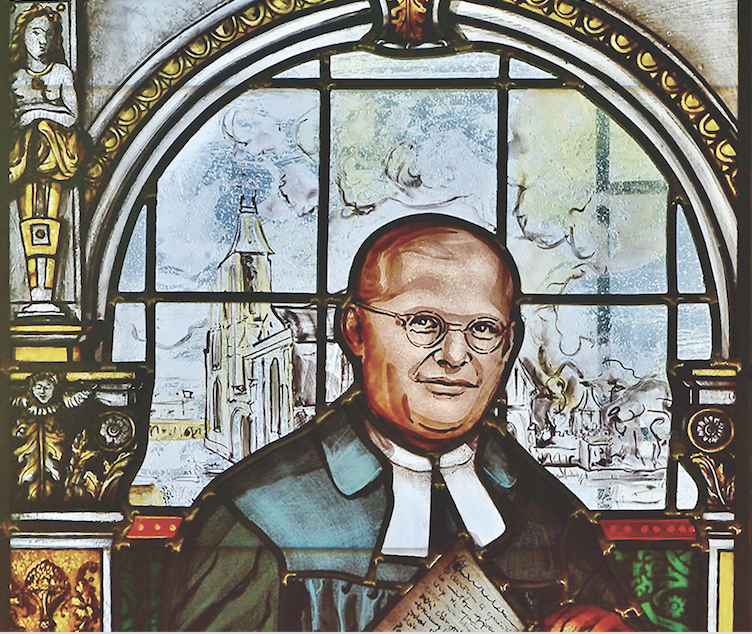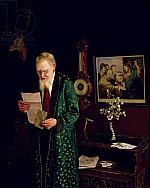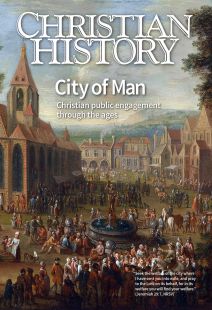The cost of discipleship?

[Above: Dietrich Bonhoeffer from stained glass window of the church of St. Krzysztof in Wrocław—Tomasz Kmita-Skarsgård / [CC-BY-SA 4.0] Wikimedia]
Dietrich Bonhoeffer’s (1906–1945) resistance to Nazism has provided inspiration for resistance movements worldwide. In his native Germany, he enjoyed widespread influence among those who worked for the fall of the Berlin Wall. Liberation theologians in Latin America drew on him; theologians in South Africa appealed to him against apartheid; Japanese activists used his legacy against the emperor system; and both sides of the US political fence have made lively recourse to his thought. In some cases his name is invoked to suggest violent overthrow.
It is true that Bonhoeffer did participate in a conspiracy to overthrow the Third Reich and kill Hitler. But to associate his legacy exclusively with this plot dramatically truncates his witness. He thought and wrote a great deal about resistance, but as neither political theorist nor political activist but as a Christian pastor and Lutheran theologian. If he does have anything to teach us, it is not to take up armed resistance at the first whiff of tyranny. His participation in a violent conspiracy was the endgame of a long resistance process.
Taking up the sword
Bonhoeffer’s resistance activity can be divided into three phases. In the first, which began with the Nazi rise to power in 1932 and 1933, he encouraged resistance primarily through the proclamation of the ecumenical church. In the second phase, beginning in 1935 when he returned from pastoring in London to lead a seminary in Germany, he encouraged it primarily through the suffering obedience of a community of disciples. The third phase began in 1939 with Bonhoeffer’s conspiratorial activity and focused on the responsible action of the individual.
In 1932 Bonhoeffer taught a lecture course on “The Nature of the Church.” Students recorded in their notes his very Lutheran account of church and state:
God’s word has power also over the state. . . . God has not given the judging sword of power to the church. Its sword is the word and the prayer. . . . The goal is the proclamation of the lordship of Christ over the whole world in faith and in the word. The church and the state are side by side. . . . Criticism of the state is demanded where it threatens the Word.
Soon the Kirchenkampf, or “church struggle,” over Nazism began in Germany in earnest in spring 1933. It would last until 1945 and manifested in three ways.
First, the German Christian Movement struggled to align the Protestant church with the new Nazi regime; the illegal Confessing Church, in which Bonhoeffer was active, resisted. Second, the Confessing Church and the Nazi state conflicted. The third struggle was within the Confessing Church itself; conservative and radical wings conflicted over how strenuously, broadly, and publicly to oppose both the German Christians and the Nazi state. Bonhoeffer ultimately sided with the radicals.
In a February 1933 radio address, Bonhoeffer asserted that political leaders exercise political authority not by virtue of their person but by participation in their office—consistent with the Lutheran tradition (see p. 25). Bonhoeffer contrasted this view of political authority with the Nazis locating political authority in the leader (Führer) himself.
The “Aryan paragraph” passed in April 1933 banned non-Aryans (i.e., Jews) from various organizations and professions. It did not immediately apply to the church. Nonetheless, by this time Hitler had made clear his intention to extend to the churches his policy of Gleichschaltung, forcible coordination of all aspects of life under the Nazi worldview.
Furthermore, the first Reich convention of the German Christians in early April 1933 showed that many Christians would gladly force ethnically Jewish Christians into their own segregated congregations or prohibit them from the Christian ministry. In response Bonhoeffer wrote “The Church and the Jewish Question,” where he outlined three potential responses to unjust authority:
[First], questioning the state as to the legitimate state character of its actions, that is, making the state responsible for what it does. Second is service to the victims of the state’s actions. The church has an unconditional obligation toward the victims of any societal order, even if they do not belong to the Christian community. . . . The third possibility is not just to bind up the wounds of the victims beneath the wheel but to seize the wheel itself.
When Bonhoeffer spoke here of seizing the wheel, he had in mind a direct political word to the state. In later writings he would emphasize resistance through communal discipleship and through individual action. He also distinguished between the church and humanitarian organizations.
Many people thought that if the church speaks in politics it does so on the basis of its moral authority. Bonhoeffer disagreed. If the church speaks in politics, he thought, it does so on the basis of the gospel.
Disciples should expect suffering
In October 1933 Bonhoeffer began pastoring two churches in London attended primarily by Germans. It seemed strange to leave Germany at such a tumultuous time. Not all his friends and colleagues understood; when Bonhoeffer finally informed his mentor, the great Swiss theologian Karl Barth (1886–1968), he received a blistering reply: “I truly cannot do otherwise than call to you, ‘Get back to your post in Berlin straightaway!’”
In May 1934 the Barmen Declaration—a statement against Nazism—was issued, and the Confessing Church was formed. Bonhoeffer had publicly called for the church to speak up, but had privately expressed doubts about whether it was up to the task, writing to his friend Helmut Rößler in 1932: “Our church today cannot utter a concrete commandment.”
Despite Bonhoeffer’s fears, the Barmen Declaration repudiated the Nazi state on the basis of the gospel, and some signatories were attentive to how it would be received in the ecumenical world. Bonhoeffer affirmed Barmen wholeheartedly and threw himself into the work of the Confessing Church. But he understood these victories as only the first steps in a long path.
Bonhoeffer returned to Germany in 1935, not to reenter the political fray in Berlin but to lead the newly formed Confessing Church seminary, first in the Baltic peninsula of Zingst and later in Finkenwalde (now in Poland). It looked as if he had exiled himself, but he labeled this moment in his life as the second battle of the church struggle. As he taught, he was also writing The Cost of Discipleship (1937). There he argued that disciples should expect suffering:
Just as Christ is only Christ as one who suffers and is rejected, so a disciple is a disciple only in suffering and being rejected, thereby participating in crucifixion. Discipleship as allegiance to the person of Jesus Christ places the follower under the law of Christ, that is, under the cross.
This theme had a concrete resonance for Finkenwalde seminarians enduring real hardships for their choice to pursue ordination through the Confessing Church rather than through the state-supported church. They had put vocational security, pensions, and parsonages at risk, and subjected themselves to a legally suspect status and the surveillance that came along with it.
A circle of conspirators
In 1937 SS leader Heinrich Himmler (1900–1945) banned the training of Confessing Church pastors, and the Gestapo closed down Finkenwalde. Bonhoeffer continued training seminarians in a makeshift underground network of “collective pastorates.” Trainees served as apprentices with Confessing Church pastors; Bonhoeffer and others traveled from congregation to congregation and circulated written material.
To avoid military conscription, Bonhoeffer emigrated to New York to work at Union Theological Seminary in summer 1939. What was supposed to be a permanent move turned into a brief visit; after three weeks and much anguish, he decided to return to Germany.
He wrote to Union professor Reinhold Niebuhr (1892–1971) who had helped pave the way for Bonhoeffer’s emigration:
I must live through this difficult period of our national history with the Christian people of Germany. I will have no right to participate in the reconstruction of Christian life in Germany after the war if I do not share the trials of this time with my people.
On his return Bonhoeffer became, in his third phase of resistance, an active if peripheral participant in a conspiracy to undermine the Nazi state. Through his brother-in-law Hans von Dohnanyi (1902–1945), a lawyer from the Ministry of Justice, Bonhoeffer learned of subversive military plans to limit the power of the SS and Gestapo and check Hitler’s push to war.
Eventually the conspirators became convinced that a full overthrow of the Nazi regime was necessary and would succeed only if Hitler were killed. With Bonhoeffer’s apparent knowledge and approval, several unsuccessful attempts on Hitler’s life were made. Many conspirators, including Bonhoeffer and von Dohnanyi, were executed shortly before the end of the war.
Active resistance aimed at undermining the government was genuinely new for Bonhoeffer; he may not even have considered it until pulled into the circle of conspirators. But free, responsible resistance by an individual now came to the fore in his writing. He began to ask: what if the state, which God has mandated to maintain order, actually threatens to undermine that order? For Bonhoeffer, responsible action involved the morally suspect overthrow of the Third Reich and the equally suspect killing of Hitler.
All his life Bonhoeffer believed that the Christian’s political work is to serve the structures by which God preserves the world for its redemption. In extreme cases, where the structures of preservation are giving way, he concluded, this calling might express itself in actions that aim at their violent restoration. CH
By Michael P. DeJonge
[Christian History originally published this article in Christian History Issue #141 in 2021]
Michael P. DeJonge is professor and chair of religious studies at the University of South Florida and author of several books on Bonhoeffer, including Bonhoeffer on Resistance: The Word Against the Wheel, from which this is excerpted with permission.Next articles
Doing church, being church
Christians bring to the table not so much a different set of propositions, but a different citizenship.
Peter Storey and the editorsOrganizing for engagement
A small sampling of Christian organizations and movements through the centuries that promoted civic engagement in different spheres for the common good
Jennifer Woodruff Tait







